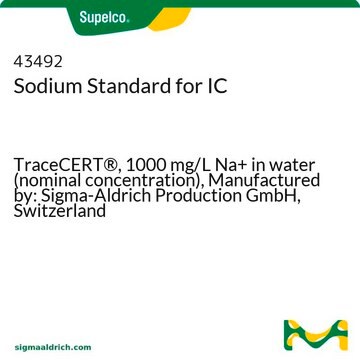379964
Calcium acetate hydrate
99.99% trace metals basis
Sign Into View Organizational & Contract Pricing
All Photos(1)
About This Item
Linear Formula:
(CH3COO)2Ca · xH2O
CAS Number:
Molecular Weight:
158.17 (anhydrous basis)
Beilstein:
3692527
MDL number:
UNSPSC Code:
12352302
PubChem Substance ID:
Recommended Products
Assay
99.99% trace metals basis
form
powder
impurities
<1% acetic acid
SMILES string
O.CC(=O)O[Ca]OC(C)=O
InChI
1S/2C2H4O2.Ca.H2O/c2*1-2(3)4;;/h2*1H3,(H,3,4);;1H2/q;;+2;/p-2
InChI key
XQKKWWCELHKGKB-UHFFFAOYSA-L
Looking for similar products? Visit Product Comparison Guide
General description
Calcium acetate hydrate is an organic calcium salt. It is the principal component of PA (pyroligneous acid)-modified limestone.
Application
Calcium acetate hydrate may be used as the following:
- Precursor to produce calcium ions in the development of CaO-based mesoporous CO2 sorbent.
- Precursor in the synthesis of Fe3O4 (magnetite )–Ca3(PO4)2 (calcium phosphate) core–shell nanoparticles.
- Raw material in the synthesis hydroxyapatite–wollastonite composites.
- Component of the reservoir solution used to induce crystallization of proteins.
- Crosslinking agent in the microfluidic production of alginate hydrogel microbeads.
- To rinse the glass surfaces before bonding during the formation of nano channels.
Storage Class Code
13 - Non Combustible Solids
WGK
WGK 1
Certificates of Analysis (COA)
Search for Certificates of Analysis (COA) by entering the products Lot/Batch Number. Lot and Batch Numbers can be found on a product’s label following the words ‘Lot’ or ‘Batch’.
Already Own This Product?
Find documentation for the products that you have recently purchased in the Document Library.
Greg Buhrman et al.
Proceedings of the National Academy of Sciences of the United States of America, 107(11), 4931-4936 (2010-03-03)
Ras and its effector Raf are key mediators of the Ras/Raf/MEK/ERK signal transduction pathway. Mutants of residue Q61 impair the GTPase activity of Ras and are found prominently in human cancers. Yet the mechanism through which Q61 contributes to catalysis
Mechanical and bioactive behavior of hydroxyapatite-wollastonite sintered composites.
Encinas-Romero MA, et al.
International Journal of Applied Ceramic Technology, 7(2), 164-177 (2010)
Cyclic CO2 capture behavior of limestone modified with pyroligneous acid (PA) during calcium looping cycles.
Li Y, et al.
Industrial & Engineering Chemistry Research, 50(17), 10222-10228 (2011)
Development of high-temperature CO2 sorbents made of CaO-based mesoporous silica.
Huang CH, et al.
Chemical Engineering Journal, 161(1), 129-135 (2010)
Nano-channel formation using a low-temperature glass-to-glass bonding process.
Schultz A, et al.
Proceedings of the Institution of Mechanical Engineers, Part N: Journal of Nanoengineering and Nanosystems, 224(4), 183-187 (2010)
Our team of scientists has experience in all areas of research including Life Science, Material Science, Chemical Synthesis, Chromatography, Analytical and many others.
Contact Technical Service![Calcium acetate hydrate [about 94% Ca(CH₃COO)₂] for soil testing](/deepweb/assets/sigmaaldrich/product/images/350/751/c4f466f3-0750-4cb4-af8f-5942eba5d12f/640/c4f466f3-0750-4cb4-af8f-5942eba5d12f.jpg)







